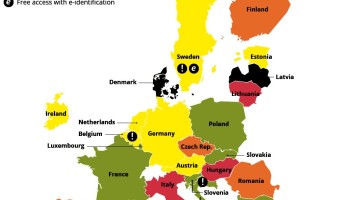According to HD, the two firms are linked to a Stockholm company that withheld another €10.5 million (US$13.3 million) in taxes.
Tax fraud is easier to pull off than traditional smuggling in several ways. First, companies purchase cigarettes, import them legally into Sweden and store them in warehouses. From the date when the cigarettes arrive at the warehouse, the importers have 72 days to declare them to the tax authorities. Up to this point, everything is legal.
The trick is selling the cigarettes before the time limit is reached. Since the cigarettes are indistinguishable from other legally imported cigarettes, they cannot be tracked. Because they are skipping out on taxes, the importers sell their cigarettes at lower than normal prices to win over customers – and still make a large profit.
By the time the authorities discover the fraud, people running the operation are gone, and so is the money. Usually a “dummy” chosen to represent the company takes the blame.
While searching the car of a man convicted for economic crimes and links to organized crime, in Gothenburg in 2005, authorities came across a how-to plan which explained the tobacco tax scheme, according to the newspaper. The first cases of this type of fraud were recorded in 2007, and the number of cases has risen since.





